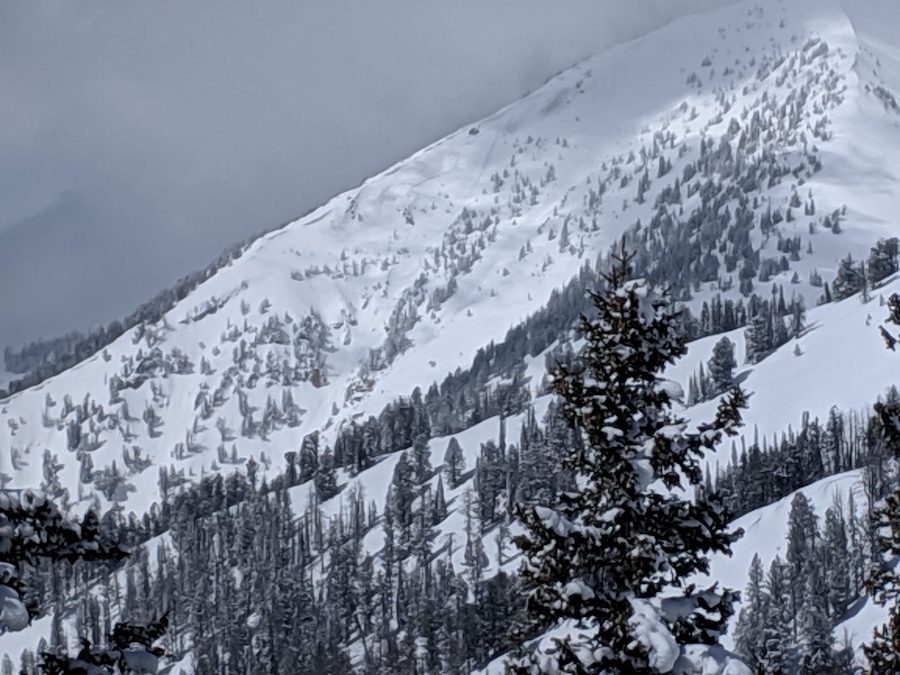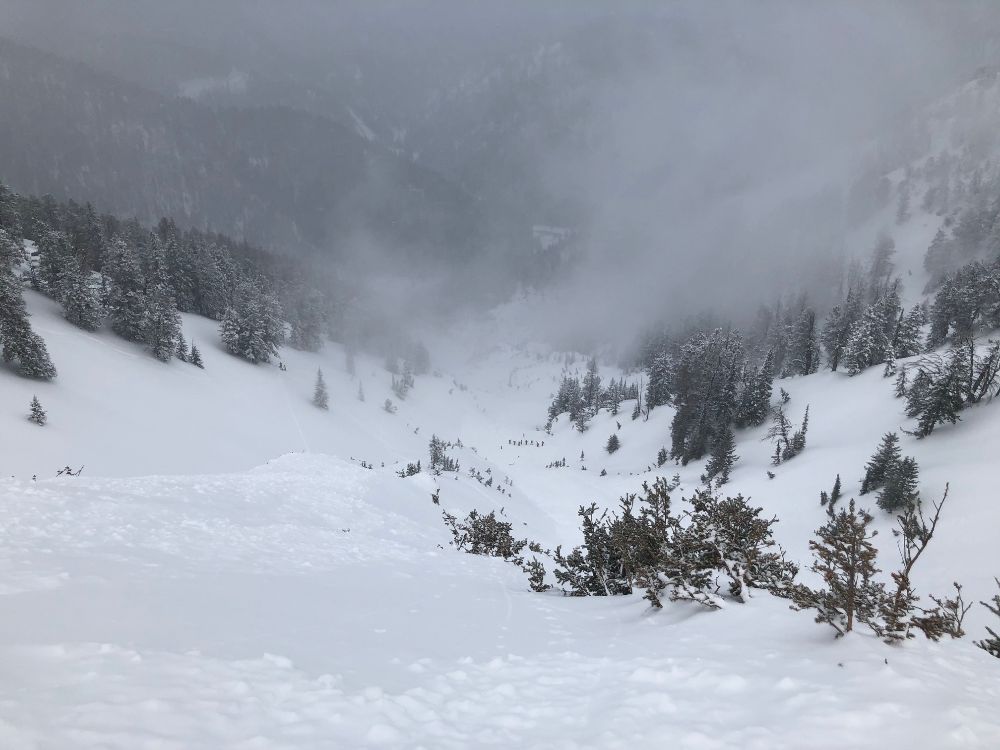After a two-day search, a rescue dog discovered the body of 28-year-old Trace Carillo on Mt. Taylor, a steep peak on the western side of Teton Pass. The snowboarder was swept and buried in an avalanche Wednesday afternoon.
Carillo was a wilderness ranger for the U.S. Forest Service and a manager at the Mangy Moose in Teton Village. “Trace was one of the most adored and trusted members of our Mangy Moose family,” reads a Mangy Moose Facebook post. “His integrity and intelligence were appreciated by all who had the pleasure of knowing and working with him. Consistently cheerful and upbeat, Trace made everyone around him happier.”
The Mangy Moose will be making a donation to Teton County Search and Rescue in Carillo’s name, the post read.
Carillo’s body was recovered around 11 a.m. Thursday, according to Cody Lockhart, incident commander for Teton County Search and Rescue.
“It is a true tragedy,” Lockhart said. “Our team’s heart and sympathies go out to his friends and family.”
Amid roughly 17 inches of new snow and limited visibility, Carillo was descending the 10,352-foot peak when he was swept in an avalanche and his partner lost sight of him. According to the Bridger Teton Avalanche Center, the crown of the soft slab avalanche was two to three feet at its deepest point with an average depth of six to eight inches.

Rescuers detonated five avalanche bombs on Mt. Taylor to test avalanche safety as they searched for Trace Carillo. (Jay Pistono)
Carillo’s partner searched for him with her avalanche beacon. When she couldn’t locate him, she skied down to the Coal Creek parking lot and called search and rescue.
Around 2:30 p.m. Wednesday, a team of 40 rescuers assembled, including dozens of Teton County Search and Rescue volunteers, avalanche technicians from WYDOT, as well as Jackson Hole Mountain Resort ski patrollers and dog teams.
Rescuers found Carillo’s intact splitboard below the toe of the slide. But limited visibility in avalanche terrain hampered the crew’s rescue efforts on Wednesday, Lockhart said. They could not use a helicopter that day to test for avalanches, which would open up further terrain for teams to search for Carillo.
“Taylor is a big, scary mountain and putting people up there in avalanche terrain is a risky thing for us to do as a team and not something we take lightly,” Lockhart said.
The search resumed 6:30 a.m. Thursday. Crews worked through the slide path using probe lines and avalanche beacons. A break in the weather mid-morning allowed them to fly a helicopter over the mountain and test for avalanches. After they triggered a slide, rescuers felt safe moving deeper through terrain, Lockhart said. That’s when a rescue dog located Carillo’s body.
The Bridger-Teton Avalanche Center rated avalanche danger as “moderate” on Wednesday. But avalanche ratings alone scarcely offer a full picture of backcountry conditions.
“If you look at the complete report, there are variables outside of that, such as possible avalanches in leeward zones and steep areas—which describes where the pair was,” said Jay Pistono, Teton Pass ambassador through Friends of Pathways.
Lack of visibility further complicated the duo’s excursion, Pistono said.
A rescue of this magnitude during the COVID-19 pandemic presented some complexity. Matt Hansen, communications director for Teton County Search and Rescue, said rescuers were taking precautions, such as practicing social distancing, to stay safe during the rescue. Even during a global pandemic, the team “has remained totally ready to respond to backcountry accidents,” Hansen said.
Still, TCSAR is encouraging backcountry users to take steps that will protect first responders and the valley’s limited medical infrastructure. Building “extra margins of safety into decision making” is paramount right now, Hansen said.
Stationed at the top of Teton Pass “eight days a week,” Pistono also urges people venturing into the backcountry “to make conservative decisions.”
After Jackson Hole Mountain Resort, Grand Targhee and Snow King shuttered to slow the spread of COVID-19, he has watched the number of folks skiing and snowboarding in the backcountry skyrocket. Pistono worries many are perhaps more accustomed to resort skiing: “Those areas are controlled extensively [for avalanches]. Out here, it is wild snow.”
On Wednesday, Pistono counted a record 600 cars come and go at the parking lot at the top of Teton Pass. (That’s where skiers and snowboarders park to access runs off Mt. Glory and lines on the south side of the pass.) That number is nearly twice the 350 cars that set a previous record, he said.
“You’re trying to micro-manage a slope in terms of safety and you can’t just go off what the avalanche center says,” he said. “We’re doing our best to keep these access points open, but people need to keep their guard up.”
Some in the snow sports world are trying to amplify such messages of caution.
Alex Yoder’s family owns the Mangy Moose, where Carillo worked. He didn’t know Carillo “but those who did, including my dad, are devastated by this loss,” he wrote in a Facebook post. Yoder, a professional snowboarder, urged people to shift their mindsets about using the backcountry and taking risks during the COVID-19 pandemic.
“Sadly, it’s not out of the ordinary for us to lose friends to the mountains in this valley, but right now is an exceptionally unique point in history,” he wrote. “One that ostensibly demands us to hit pause on our lifestyles in support of a fight that is becoming exceedingly challenging for communities large and small.”
Count on KHOL for vital coverage during the COVID-19 pandemic. Your support ensures the future of this essential community service. Become a member today.






